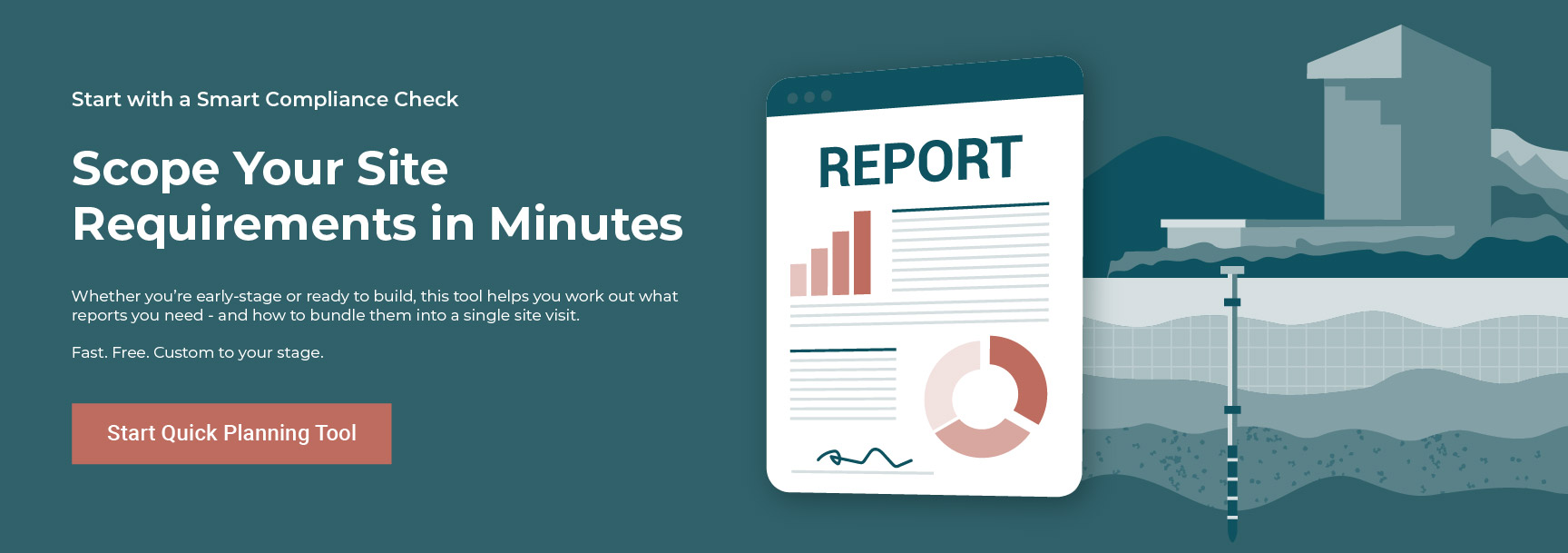Industrial developments in Australia present both opportunity and responsibility. Every project must operate within a complex regulatory framework designed to safeguard human health, communities, and the environment. Navigating these obligations requires a structured, well-informed approach to avoid compliance risks and ensure project certainty.
The Importance of a Strong Compliance Framework
Regulatory compliance is not an administrative formality: it is a core requirement for gaining approvals, securing financing, and ensuring operational continuity. For industrial projects, early engagement with regulatory obligations supports smoother approvals, reduces project risk, and demonstrates due diligence to stakeholders.
Core Regulatory Obligations for Industrial Projects
While requirements differ by jurisdiction, most industrial developments in Australia must address several consistent areas of compliance:
Planning and Development Approvals
Local councils and state planning authorities require approvals to confirm that developments align with planning schemes and environmental objectives. In many cases, this includes Environmental Impact Assessments (EIAs) or equivalent studies.
Environmental Protection Authority (EPA) Licensing
EPA licences regulate industrial operations with respect to emissions, discharges, and waste. These licences set enforceable conditions that must be met for facilities to operate legally.
Contamination and Land Suitability Assessments
Sites with past industrial or agricultural use often require preliminary or detailed site investigations. These confirm whether the land is suitable for the intended use and identify if remediation or management measures are required.
Waste and Hazardous Materials Obligations
Industrial projects must comply with strict standards for the handling, storage, transport, and disposal of waste and hazardous substances. Regulators expect evidence of systems that prioritise minimisation and safe management.
Monitoring and Ongoing Compliance Reporting
Many approvals include conditions requiring long-term monitoring of groundwater, surface water, noise, or emissions. Transparent reporting to regulators ensures environmental compliance is maintained throughout the project lifecycle.
Common Compliance Challenges
Developers frequently encounter difficulties such as:
- Navigating overlapping federal, state, and local requirements
- Interpreting technical guidelines consistently with regulator expectations
- Addressing emerging contaminants (e.g. PFAS) with evolving standards
- Meeting stringent documentation and reporting deadlines
These challenges can delay approvals if not managed proactively.
Start with a Smart Compliance Check
Scope Your Site Requirements in Minutes
Whether you're early-stage or ready to build, this tool helps you work out what reports you need and how to bundle them into a single site visit.
Fast. Free. Custom to your stage.
The Role of Environmental Consultants
Environmental consultants play a critical role in ensuring regulatory obligations are met efficiently and defensibly. Their expertise covers:
- Identifying all applicable approvals and permits early in the project lifecycle
- Preparing EIAs, licence applications, and supporting technical studies
- Designing monitoring and reporting programs aligned with EPA standards
- Conducting site contamination and risk assessments
- Facilitating engagement with councils, state regulators, and stakeholders
This specialist support helps projects remain compliant while maintaining technical and regulatory integrity.
Case Example: Industrial Expansion with Multi-Agency Oversight
A manufacturer seeking to expand operations required approvals from council, the state EPA, and the Department of Water. With consultant support, the company:
- Completed an EIA addressing emissions, water management, and waste
- Secured an EPA licence variation aligned with increased output
- Implemented groundwater monitoring to meet long-term conditions
The expansion proceeded without regulatory delays, underpinned by clear evidence of compliance.
Key Insights
- Industrial projects in Australia must address planning approvals, EPA licensing, site assessments, and waste management obligations.
- Early compliance planning reduces risk of delays and strengthens regulator and stakeholder confidence.
- Independent environmental consultants provide the expertise needed to prepare defensible assessments, secure approvals, and manage ongoing obligations.
Support for Your Industrial Development
At Nova Group Pacific, we specialise in guiding industrial developments through complex regulatory frameworks. Our team brings proven experience in environmental approvals, EPA licensing, and compliance reporting across Australia.
Book a consultation today to discuss your project and ensure your regulatory obligations are addressed with precision and confidence.












.png)







